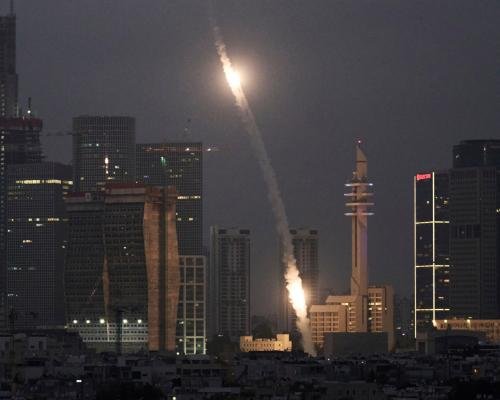Tehran Will Burn – Israel Warns After Historic Airstrikes Against Iran
Tehran/London/Dubai, June 14, 2025
Israel has launched its largest-ever cross-border military campaign against Iran—Operation Rising Lion—marking a significant escalation in the long-simmering conflict over Iran’s nuclear ambitions.
How It Began: A Pre-emptive Strike
Codenamed “Rising Lion”, Israel’s Mossad and Air Force conducted an unprecedented blow in the early hours of Friday, targeting over 100 strategic sites across Iran—including nuclear facilities at Natanz and Isfahan, missile bases, command centres, and residences of senior military commanders. Among the casualties were at least 78 individuals, including six nuclear scientists and high-ranking IRGC officers.
Prime Minister Benjamin Netanyahu defended the operation as a necessary pre-emptive move to disrupt Iran’s nuclear weaponisation timeline, calling it a “clear and present danger”.
Iran’s Retaliation & Israel’s Threat
Late Friday, Iran responded with a comprehensive counter-attack, launching around 200 ballistic missiles and over 100 drones toward Israel. While Israel’s Iron Dome intercepted most, some missiles landed in central cities like Tel Aviv and Jerusalem, causing multiple casualties, prompting sirens, and forcing residents into shelters. At least three Israelis and scores of Iranian civilians were killed during the exchanges.
In response, Israel’s Defence Minister, Israel Katz, warned Iran in stark terms: “If Khamenei continues to fire missiles … Tehran will burn”.
Global Diplomacy & International Reactions
- United States: While monitoring closely, the U.S. helped intercept several Iranian missiles but distanced itself from planning the Israeli strikes.
- Donald Trump (former U.S. President) urged Iran to negotiate, praising Israel’s move while warning of deeper consequences.
- Russia, China, and Europe: Major powers condemned the assault—Russia labelled it “unprovoked and unacceptable,” while European nations and U.N. Secretary-General António Guterres urged maximum restraint.
- Iran: The Supreme Leader declared the nuclear dialogue with the U.S. “meaningless” and threatened to target U.S., U.K., and French military assets if they interfered with Iran’s next wave of strikes.
Regional & Economic Fallout
- Oil markets: Brent crude has surged over 10%, hitting ~$73 per barrel due to disruption risks in Middle East oil routes.
- Air traffic: Multiple airlines rerouted flights, and airspace closures disrupted regional air travel.
- Security alerts: Countries including Jordan, Saudi Arabia, the U.K., and the U.S. elevated domestic security, with embassies closing and protective advisories issued.
Current Status & Risks Ahead
- Military stalemate: Both nations have entered a sustained state of military alert. Israel continues airstrikes and missile defence operations; Iran has launched fresh barrages and continues threats.
- Nuclear negotiations in peril: Talks set for Oman have been suspended indefinitely, with Iran citing Israeli aggression as the main barrier.
- Regional escalation: Tehran has hinted at deploying proxies such as Hezbollah, while Israel warns of striking Iranian proxies across the region.
Why It Matters
- This marks the largest direct strike on Iran since the 1980s, targeting not just infrastructure but personnel, signaling a potential shift toward decapitation strike tactics.
- It underscores a new active strategy by Israel against nuclear threats, bypassing slow multilateral diplomacy to enforce security objectives.
- The unfolding events threaten to widen the conflict, potentially dragging in extra-regional powers and destabilizing energy markets and diplomacy across the globe.
What’s Next
- Outlook: The situation remains highly volatile, with further strikes from both sides likely. Iran’s vow to attack Western military assets suggests deeper escalation ahead.
- Diplomatic alarm bells: International mediators—including the U.N., EU, and Oman—are racing to de-escalate and restore regional order.
- Watchpoints: Upcoming priorities include potential proxies’ involvement, protection of non-combatant regions, and whether nuclear diplomacy can regain traction.

